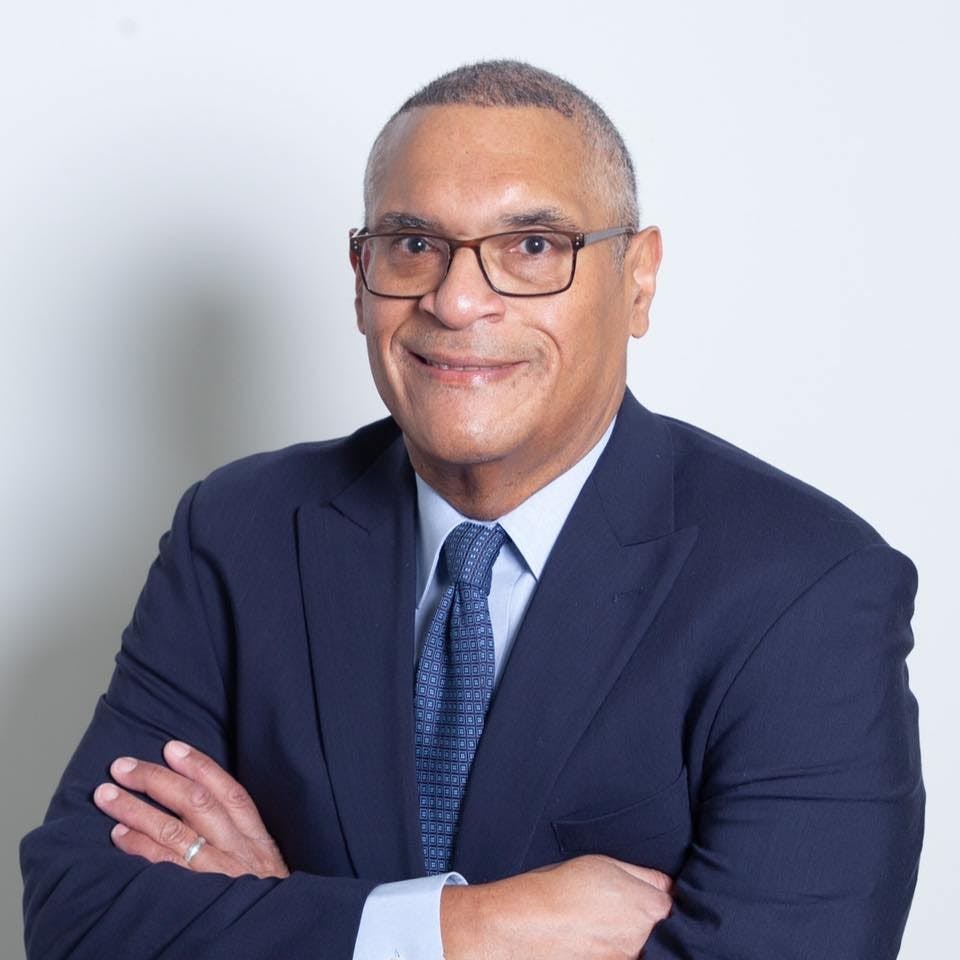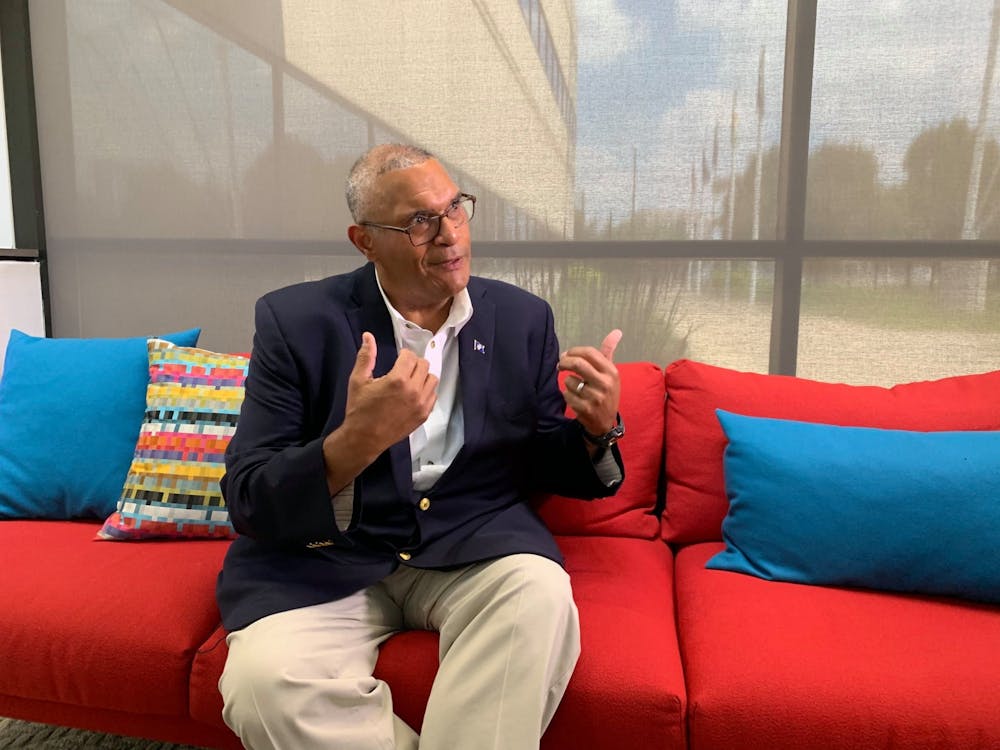Dr. Woody Myers — the Democratic candidate for Indiana’s gubernatorial race — is a physician who has worked in an intensive care unit and served as Indiana’s state health commissioner under two governors and New York City’s health commissioner in 1990. He believes Indiana’s public schools need more funding and that the state needs a stricter mask mandate.
Myers is also the first Black candidate for the governor of Indiana for either major party. And, if elected, he would become the first Black governor in a long string of 51 white men.
Myers said one of the biggest issues in Indiana is that Hoosiers are not all provided equal opportunities or equity.
“We have a system that works really well for the people at the top,” Myers said. “There are obstacles that some people have that other people do not.”
Myers said one example is how the age requirement for school is 7 years old. He said having the age requirement so high can give certain kids whose families can’t afford preschool education a disadvantage even before kindergarten starts.
“Maybe these kids didn’t have the opportunity to touch a keyboard, to move a mouse until they were far older than their peers,” Myers said. “That’s just sets them behind from the beginning.”
He said this has adversely affected Black children, whose pass rates on the state-mandated ILEARN exam are lower than those of white children. The 2019 ILEARN results show less than 15% of Black students and less than a quarter of Hispanic students in third through eighth grade passed both math and English portions of the exam, while 43.3% of white students passed both test parts.

Other aspects that have specifically affected Black children’s education is outdated equipment in Indianapolis schools, the lack of good Wi-Fi in those areas and the fact that punishments are disproportionately harsher for Black kids, Myers said.
He said he would work to address these issues by directing more of the money to public schools and away from private institutions.
It’s important to talk about these differences and disparities because otherwise they can get pushed under the rug, Myers said.
“Unless you put the spotlight on them and talk about them and put some money behind them, they don’t get fixed,” he said.
As a Black man who grew up in a challenging racial environment, Myers said he brings an understanding of certain issues minorities have to face that his opponents, who are both white, would not understand. He said he has been stopped by police for no reason and faced some racist treatment while training to become a physician.
“I can remember many, many incidents when I was growing up that would not have occurred had I not been Black,” Myers said. “It’s kind of hard for people that haven’t gone through that to understand that.”
He said because of these experiences he is more aware of the ways in which society is not equal and therefore can help identify those and address those inequities at the state level.
One of the ways Myers plans to address this is through criminal justice reform. At the gubernatorial debate Tuesday night, he said he will have every officer wear body cameras and every police car use dashboard cameras and will require bias training. He also said he would decriminalize marijuana possession and make sure laws regarding drug regulation are applied fairly, since Black people get arrested three to four times more than white people even though they use substances at similar rates.
Myers said his experience as a physician would also help him if he is elected.
During his time working in an intensive care unit, Myers saw the effects of gun violence, car crashes and nicotine addiction. All of these experiences have affected some of his political beliefs and goals.
Regarding gun violence, Myers said he wants to install universal background checks, get rid of the gun show loophole and lower accessibility to clips with large amounts of bullets.
“It takes just a second for someone to fire a gun and that will either kill somebody or change their life forever,” Myers said. “That’s why guns are so dangerous. It’s unlike any other weapon because the time required to utilize it is so short and the effects are so long-lasting.”
He said this is why it’s important to keep guns away from people who should not have them.
Myers said as a physician he believes the state can do more to help prevent the spread of COVID-19.
“Stage 5 is not working,” Myers said, referring to current Gov. Eric Holcomb’s Back on Track Indiana COVID-19 plan. “The current distancing policies are not working. The current lack of a mask mandate is not working.”
Myers said it’s clear Holcomb’s policies are not working because of the recent increase in cases.
While Myers decided to run before the COVID-19 pandemic, he said he believes he will be able to help out more in this area as a physician.
“This is perhaps a providence,” Myers said. “I have got to use everything I’ve learned for the last 30 years and make sure that our state is at the top of the response, not at the bottom, for how we deal with this pandemic."
Myers said while his main goal of the campaign is to be elected as governor of Indiana, he said he is proud his campaign has brought up issues that may not have been discussed had he not campaigned.
“I am pleased that we are raising the issues that are important,” Myers said. "I am pleased that we are in a debate. I am pleased that we are talking about problems that otherwise would not have been talked about.”




